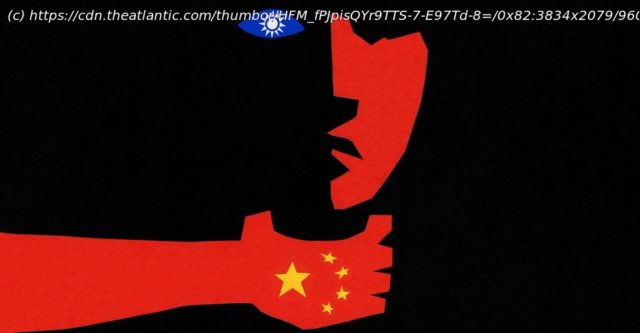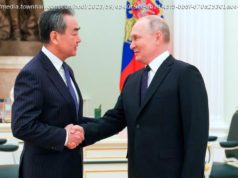Democracies around the world are no longer as worried as they once were about offending a fragile Beijing.
I n Chinese-speaking communities beyond the reach of Beijing’s censorship regime, the song “Fragile” has been an unexpected hit. With more than 26 million views on YouTube since dropping in mid-October, the satirical love song to Chinese nationalism has topped the site’s charts for Taiwan and Hong Kong, its lyrics mocking Chinese Communist Party rhetoric about Taiwan while also taking aim at Xi Jinping and Chinese censors. In parts, the Mandarin Chinese duet portrays Taiwan as an object of unwanted overtures that simply wants to get along with a hypersensitive and aggressive Beijing. Its chorus goes full it’s-not-you-it’s-me: “Sorry I’m so strong-minded / The truth always upsets you / Maybe I shouldn’t be so blunt / I’m so sorry / I’ve angered you again.” The song, by the Malaysian rapper Namewee and the Australian singer Kimberley Chen, seems to have hit all the right notes for those tiring of a perpetually offended and angry China—and resulted in the scrubbing of the duo’s Chinese social-media accounts. In Taiwan, where many pop stars stay out of the political realm to retain access to China’s lucrative market, the song has been greeted as a refreshing, and rare, send-up of its giant neighbor’s refutation of Taiwanese sovereignty. (Beijing claims that Taiwan is its territory, though the CCP has never controlled it, and Taiwanese overwhelmingly reject the idea of unification.) Yet it is also a sign of something more: Its lyrics and its context mirror the actions of democracies around the world that are growing tired of walking on eggshells to avoid angering a petulant Beijing. Rather than releasing a song, officials in Europe, Japan, and Australia are expanding long-ignored relationships with Taiwan. China’s foreign ministry has lambasted and threatened them all, but echoing the song’s ethos, they are no longer as worried as they once were about offending a fragile Beijing. I n a move likely to anger Beijing… The phrase—a touchstone of news reports about the Chinese government’s countless and often shifting red lines—will be familiar to anyone who has read about China in the past several years. The context in which it is now used, however, is markedly different. Not long ago, the Chinese government was economical and targeted with its outrage, typically lashing out only over what even critics might regard as major issues from Beijing’s point of view, such as French President Nicolas Sarkozy’s meeting with the Dalai Lama in 2008 (the CCP regards him as a Tibetan separatist), or the liberal activist Liu Xiaobo’s being awarded the Nobel Peace Prize in 2010 (Liu advocated for issues that are anathema to the CCP, such as greater individual political freedoms). “Now China just picks fights out of arrogance and bullying,” Jorge Guajardo, Mexico’s ambassador to China from 2007 to 2013, told me. When Beijing, immediately following Ottawa’s release of Huawei’s chief financial officer, Meng Wanzhou, held as part of an extradition case, released two Canadians it had detained and isolated for more than 1,000 days, it seemed a clear message to the world that hostage taking has been added to its diplomatic toolbox. Where the word Beijing once conjured the image of a confident, rising power, today it represents a frowning, finger-pointing, never-erring crank, its constant stream of vitriol diminishing the effectiveness of Chinese anger. One of the implications of this hyperinflation of hurt feelings has been the effective removal of the deterrent against democracies’ improving their unofficial relations with Taiwan. After all, if most moves are likely to anger Beijing, why hold back from any of them? The United States has led the way in expanding ties with Taiwan while grappling with an increasingly prickly China. This began under the Trump administration, and has continued under Joe Biden, who in his first year in office has twice said that the U.






